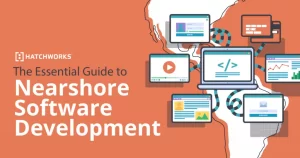You Sell Your House for Cash

As a rising number of companies provide cash offers for homes and improve experiences for sellers with advanced technology, the idea that you don’t have to wait months to list and close on your house appeals to many stressed-out sellers. If speed and convenience are on your moving list, you may be wondering if you should sell your house for cash.
Perhaps you’ve landed your dream job, but it’s across the country and you’re starting in just two weeks. Or maybe you’ve inherited a house and don’t have time to fit settling the estate into your already hectic schedule.
Selling your house for cash could be the solution when life throws you a curveball that requires a swift sale.
And with interest rates steadily climbing, a buyer with cash on hand eliminates the uncertainty of getting a loan approved. At nearly 7%, rates have more than doubled since last year, making it challenging for prospective buyers to qualify for a mortgage.
“A cash buyer is not susceptible to rate hikes,” says Will Holly, owner of Holly Nance Group, a boutique real estate investment firm in New Jersey. An increase in interest rates or a change in the buyer’s credit history or employment situation could kill a deal just days before closing. “Contracts are falling out more often,” Holly comments about the current real estate market.
Without the added risk of a financing contingency, selling to a cash buyer is typically a simple process.
“You make a phone call or answer some questions online, agree to an offer, and then it’s not something you have to worry about anymore,” says Doug Van Soest, owner of SoCal Home Buyers, a house flipping company in Southern California. “Plus, you’ll save money on things like commissions, repairs, and closing costs.”
“It turns into an easy transaction where the seller doesn’t have to be stressed out. It just takes all that pressure off the seller,” remarks Mark Abdel, a top-performing agent in Minneapolis whose specialties include investment properties.
If it all sounds too good to be true or you’re unclear about what selling a house for cash is really like, we’ll walk you through the most common questions and points of confusion.
What does it mean to sell your house for cash?
Selling your house for cash has similar benefits to trading in your old vehicle to the dealership when you buy a new car. Sure, you might pocket a little more money if you sold it yourself. But it would likely take longer — and require extra work on your end. You’d have to make minor repairs, advertise it on Craigslist, organize test drives for potential buyers, and handle all the paperwork yourself.
Translating that to real estate terms, selling a house for cash goes something like this:
1. Request an offer
You skip the staging and showing process and go straight to requesting an offer. At this point, you can communicate whether you’re selling “as is” — meaning you intend to sell the house in its current condition without making repairs — or if you’re open to resolving any inspection issues.
2. House is evaluated
The buyer will collect some information about the home, possibly send a representative to do an onsite visit, and determine what they’re willing to pay.
3. Review the contract
You’ll have the opportunity to review the offer, including the contract price and terms, and decide whether to accept.
4. Ask for proof of funds
You should always obtain documentation that a person or company is who they say they are and actually has the funds and abilities to complete a transaction of this size.
5. Complete inspections
If the deal moves forward, the cash buyer may still perform steps like the inspection and appraisal — it all depends on whom you work with and how they operate. Even if you’re selling “as is,” a home inspection could still be required.
6. Fast-forward to closing
Without a bank’s involvement, there will be no lender-ordered appraisal or loan processing period. As of October 2022, the average time to close a purchase loan for a home was 51 days, according to Ice Mortgage Technology. In contrast, a cash buyer has the ability to close in as few as 10 days to two weeks.
7. Clear title
The cash buyer will require a title search to make sure that you can convey the property free and clear of any claims or judgments against the home, such as mechanic’s liens, unpaid taxes, or boundary encroachments.
8. You get paid!
It may only take a matter of weeks or even days for the cash buyer to wire funds over to your bank account.
In summary, selling for cash won’t mean that a person shows up on your doorstep with a briefcase full of hundred-dollar bills. You’ll still have official steps to complete and possible hiccups to overcome like a title defect. But when your buyer doesn’t have to wait for the lender to underwrite or process their loan, you can usually coordinate a much faster sale. You can also breathe easier if interest rates go up knowing that your buyer won’t back out because the loan didn’t get approved or the monthly payments increased.
Are cash-for-home companies legit?
In short, the answer is yes; there are many legitimate companies out there that purchase homes for cash, will provide you with a great experience, and are good on their word. However, we always recommend that you do your due diligence on any buyer before you provide sensitive information or sign a contract.
“Check that the house-buying company has a good track record of homes purchased,” advises Holly. He suggests looking at properties that the firm bought and sold in your neighborhood and examining public records to review its transaction history. In addition, request references of other home sellers who have sold to the investor or house-buying company, and give them a call to ask about their experiences.
Abdel cautions sellers to be wary of scams in which house-buying companies promise a certain price, but then hit you with hidden fees that substantially slash your profit.
Check their BBB rating
No matter what type of house-buying company you decide to work with, make sure it’s an accredited Better Business Bureau (BBB) member. Check for positive reviews and timely responses to complaints.
Ask for proof of funds and adequate earnest money
“Ask for proof of funds such as a bank letter to make sure they have the money in their account,” Holly advises.
An official proof of funds (POF) from the buyer’s bank verifies that they have adequate liquid assets to cover the purchase price and closing costs, as well as provide sufficient earnest money, the deposit that represents a buyer’s commitment to a sale. Abdel recommends asking for 10% of the purchase price as earnest money.
Consult an agent where needed
An established real estate agent will likely have the inside track on who’s who in the local cash buyer market and can also help you avoid getting lowballed.
“A lot of agents that are experienced and have been in the business have a Rolodex of people that they can go to that they’ve worked with over time that are investors,” Abdel comments about how top agents can help find cash buyers by pitching properties to their networks.
“There are a lot of investors that are reaching out directly to homeowners to try and buy their property with cash,” notes Brian Breeckner, a top-selling real estate agent based in Columbus, Ohio who has helped investors build their portfolios. “To make sure a buyer is legitimate, or that they’re making a good offer based on the value of your home, you can always speak to an experienced local real estate agent and get their opinion.”
It’s Agent Match platform can connect you to top-performing agents in your area who sell homes faster and for more money. Our free tool analyzes over 27 million transactions and thousands of reviews to determine which agent will best meet your needs. Whether you’re looking for a quick cash sale or to expand your buyer pool by putting your home on the market, you’ll receive your agent matches in just two minutes.
What about ‘We Buy Houses’?
You’ve probably seen ads for companies proclaiming “We Buy Houses for Cash” — so are they legit?
HomeVestors of America, the largest professional house-buying franchise in the country, operates under the name “We Buy Ugly Houses®.” If you connect with any one of its more than 1,150 franchises in 47 states and 176 markets nationwide, the answer is yes. The company, which specializes in flipping dilapidated homes, is well-established in the cash house-buying space having purchased over 125,000 houses.
For more details on this particular business known for its shaggy-haired caveman and yellow billboards, we’ve put together an entire guide on the history of We Buy Ugly Houses®.
It’s easy to confuse We Buy Ugly Houses® with other companies that have similar names touting their cash house-buying capabilities such as We Buy Houses (WeBuyHouses.com), another legit house-buying group. Helping homeowners quickly sell homes in any condition for cash, this business serves over 200 markets in more than 30 states. However, the company does not have franchise locations but instead provides professional real estate investors with a license to its marketing and branding programs.
Keep in mind that “We Buy Houses” is no longer a trademarked term; so not every company you see using “We Buy Houses” in their name or marketing is going to be associated with the WeBuyHouses.com brand we’re describing here. Make sure you’re aware of whom you’re working with and don’t assume “We Buy Houses” to be the only indicator of a company’s legitimacy.
Just like you would with any other cash buyer, do some digging before working with an investor operating under the We Buy Houses brand or who has a comparable slogan offering cash for your property.
Who will purchase your home for cash?
As a group, cash buyers or house-buying companies are individuals or entities that buy your house outright and usually in as-is condition, without the need for lender financing. In general, selling your home to a cash buyer allows you to skip the home prep, showings, and staging hassles and arrange a more flexible closing timeline to coordinate with the purchase of your next residence. But not all cash buyers have the same exact business model. To keep it simple, we’ve grouped these buyers into a few broader categories you’re likely to encounter.





